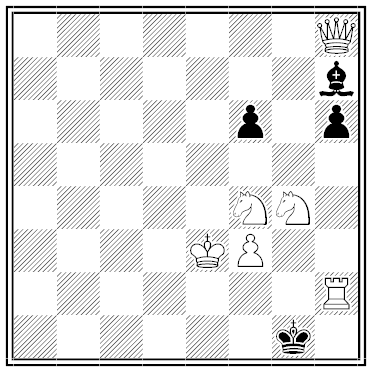Author: Greg Ross
The Bird of the Oxenhams
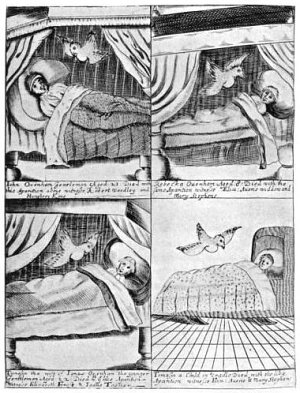
In a letter dated July 3, 1632, historian James Howell tells of seeing a curious monument in a London stonecutter’s shop: “Here lies John Oxenham, a goodly young Man, in whose Chamber, as he was struggling with the pangs of death, a Bird with a white breast was seen fluttering about his bed, and so vanished.” Howell says the same apparition attended the deaths of Oxenham’s sister, son, and mother.
He wrote that “This stone is to be sent to a Town hard by Exeter, where this happened.”
An anonymous pamphlet published nine years later gives essentially the same story. A True Relation of an Apparition in the Likeness of a Bird with a White Breast, That Appeared Hovering Over the Death-Beds of Some of the Children of Mr. James Oxenham, of Sale Monchorum, Gent. reports that a ghostly bird had appeared at the deathbeds of John, his mother, his daughter, and an infant.
On looking into this, Sabine Baring-Gould could find no trace of the monument in the Oxenham family’s parish, and the apparition isn’t mentioned on other Oxenham graves. He concludes that many of Howell’s published letters were not genuine but “were first written when he was in the Fleet prison, to gain money for the relief of his necessities.”
Creepy, though. See The Gormanston Foxes.
Legal Ode
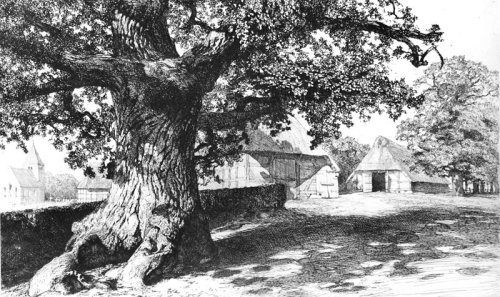
In 1983 a driver hit a tree in Michigan. A tree surgeon repaired the damage, and the driver’s insurance paid the $550 bill, but the tree’s owner claimed $15,000 for pain and suffering; he said the “beautiful oak” was like someone dear to him.
A lower court threw out the case, and the appeals court agreed. The three-judge panel declared:
We thought that we would never see
A suit to compensate a tree,
A suit whose claim in tort is prest
Upon a mangled tree’s behest;
A tree whose battered trunk was prest
Against a Chevy’s crumpled crest;
A tree that faces each new day
With bark and limb in disarray;
A tree that may forever bear
A lasting need for tender care.
Flora lovers though we three,
We must uphold the court’s decree.
Affirmed.
(Fisher v. Lowe, 122 Mich. App. 418, 33 N.W.2d 67)
The Greenwich Time Lady
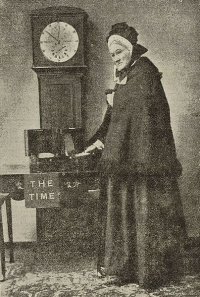
Ruth Belville sold time. Each day she would set her watch by the Greenwich clock in London and then charge a fee for the privilege of looking at her watch.
Belville’s father had established the business in 1836, when such knowledge was valuable — as railways revolutionized European travel, individual towns had to abandon their non-uniform local times, reckoned by the sun, and adopt instead the standard London time that dominated rail schedules.
For a confusing few years the nation underwent a sort of fugue, with public clocks displaying both London and local time; a few great clocks were even fitted with two minute hands. (In Dombey and Son Dickens notes these changes mournfully, “as if the sun itself had given in.”)
But by 1880 the British government had finally established a single standard time for the nation, and when Ruth Belville began selling time in 1892 she was already an anachronism. Remarkably, she continued until 1940, after the advent of World War II — by which time most of her clients were clockmakers.
(Thanks, Luke.)
In a Word
obstringe
v. to put under obligation
Compound Interest
On Jan. 18, 1897, California farmer George Jones bought a quantity of livestock feed from Henry B. Stuart of San Jose. As security he signed a $100 promissory note that bore 10 percent interest per month, compounded monthly.
They had agreed that Jones would pay the debt in three months, but the note had run for almost 25 years when Stuart got tired of waiting and told his lawyer to sue. Judge J.R. Welch of the Superior Court of Santa Clara entered this judgment on March 6, 1922:
“Wherefore, by virtue of the law and the facts, it is Ordered, Adjudged and Decreed that said Plaintiff have and recover from said Defendant the sum of $304,840,332,912,685.16 with interest thereon at the rate of 7% per annum until paid, together with the further sum of $50.00 Plaintiff’s attorney’s fees herein with interest thereon at the rate of 7% per annum until paid.”
That’s $304 trillion, “more money than there is in the world, outside of Russia,” the New York Tribune reported drily. Jones paid $19.69 and filed for bankruptcy.
Speaking Terms
Indiana University anthropologist Daniel Suslak is compiling a dictionary of Ayapaneco, an indigenous language of Mexico that has only two remaining fluent speakers.
Unfortunately, the two aren’t speaking to each other.
Manuel Segovia, 75, and Isidro Velazquez, 69, live 500 meters apart in the southern state of Tabasco, but “they don’t have a lot in common,” Suslak told the Guardian in April. Segovia can be “a little prickly,” and Velazquez is “more stoic” and rarely leaves his home.
Without their cooperation, Ayapaneco may die out altogether. “When I was a boy everybody spoke it,” Segovia said. “It’s disappeared little by little, and now I suppose it might die with me.”
(Thanks, Sharon.)
Miracle Aid
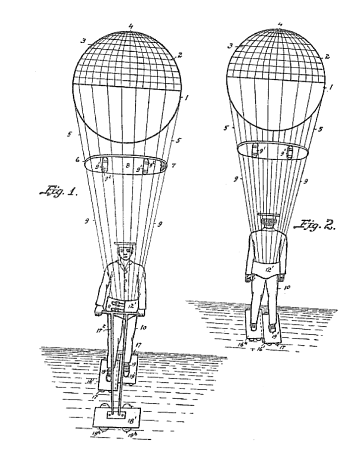
Patented in 1918, Martin Jelalian’s “device for walking upon the surface of the water” enlists a gas balloon to hold the user upright as he “slidably walks” to his destination.
This seems an improvement on the water-walking contraptions of 1858 … unless the wind picks up.
A Puzzling Figure

A poser from Jerome S. Meyer’s Puzzle Quiz and Stunt Fun (1956):
“The mark above is the mark of evil. It is the symbol of murder and terror. Millions have died for it and millions have died because of it. Can you tell what it is?”
Divide and Conquer
In 1980, Colorado math teacher William J. O’Donnell was explaining that

when a student noted that

“My immediate reaction was that this student had stumbled onto a special case where this algorithm worked,” O’Donnell wrote in a letter to Mathematics Teacher. “Later, a couple of minutes of work revealed that this technique works for all fractions. Let a, b, c, and d be integers. Then

“Whereas this method can be conveniently applied on occasion, it does not offer the student much advantage when c does not divide a and d does not divide b.”

